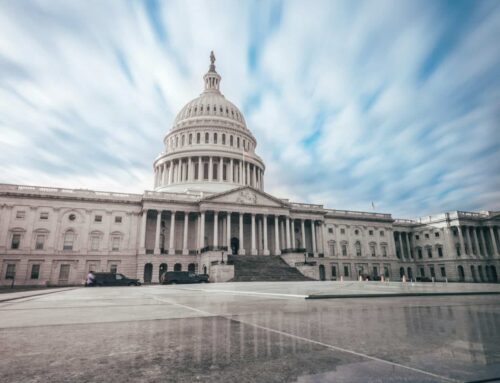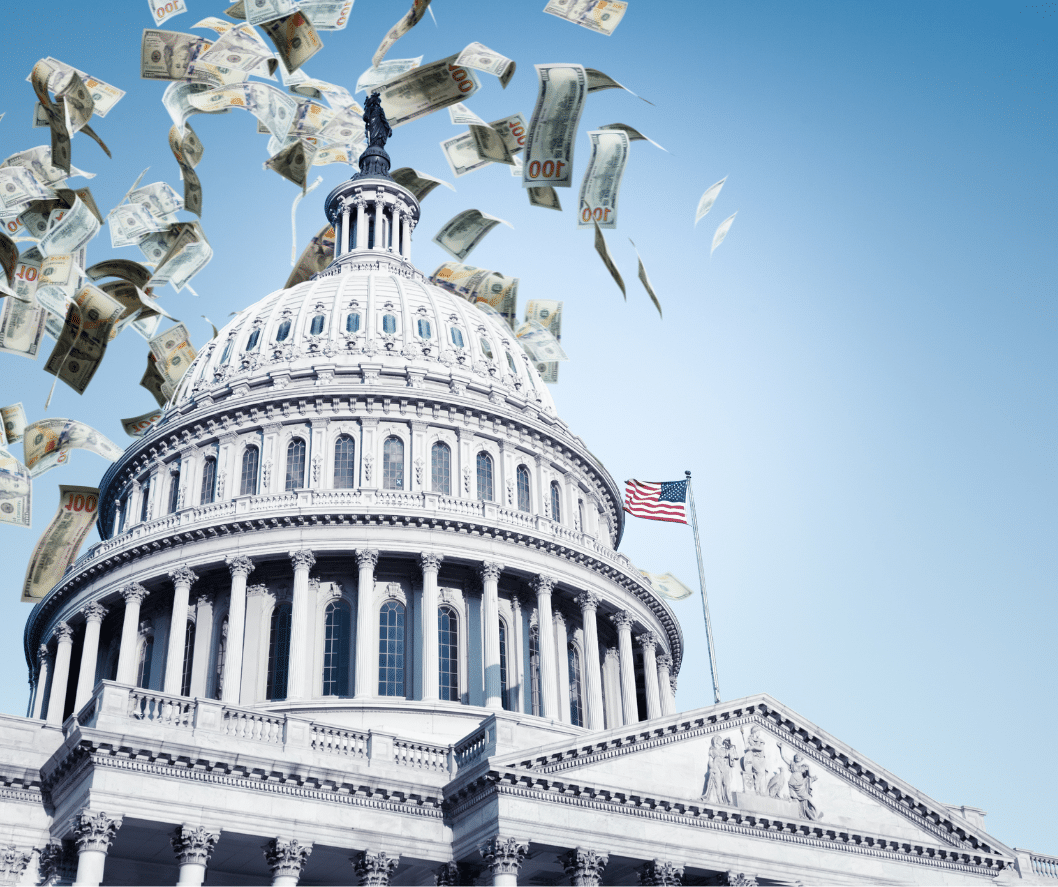After slapping Congress on the wrist for larding up this year's budget with billions of dollars in earmarks, last night President Bush approved close to $400 billion in spending, bringing the 2003 discretionary budget to a whopping $791.5 billion. By rubber stamping every spending bill that has crossed his desk, the President has allowed a 20% increase in federal spending over the last two years.
Nevertheless, in his recently released budget request, the President proposed to limit next year's spending growth to four percent. If the President is serious and puts his money where his mouth is, Congress has a serious task to accomplish. The following is a list of subsidies and programs which offer little to no benefit to the greater public good and therefore ought to be first on the chopping block:
F/A-22 Jet Fighter – This project is a Cold War-era relic and has been plagued by persistent cost overruns. The need for this jet fighter is questionable in light of our nation's dominant air superiority. Total savings: $69.7 billion.
Comanche Helicopter – When this program was first started, the Army estimated that it would cost $3.6 billion over 8 years to develop. After 20 years cost overruns have caused the program's development costs to skyrocket to more than $8.3 billion and there are still technological problems. Total savings: $47.9 billion.
V-22 Osprey Aircraft – This tilt-rotor, vertical takeoff and landing aircraft has been plagued with cost overruns, mechanical problems and failures throughout its development life, including four crashes that took the lives of 23 Marines. Currently, there are less costly alternatives in service. Total savings: $46.2 billion.
Market Access Program – This program funnels taxpayer money to corporate trade associations to advertise agricultural products overseas. Not a single study has revealed a measurable benefit to agriculture exports. Total savings: $700 million over the next five years.
National Ignition Facility – This super laser is being built by the Department of Energy nuclear weapons project at the Lawrence Livermore National Laboratory in northern California. Current plans call for the stadium-sized National Ignition Facility to focus the light from 192 powerful lasers on a tiny target, creating for a brief instant temperatures and pressures similar to those inside a nuclear explosion or at the sun's core. The project, which has been under construction since 1997, has encountered a series of problems, including the resignation of its director, construction delays and massive cost overruns. Total savings $10 billion.
Clean Coal – Since 1984, this program has received more than $2.4 billion to fund research and development of experimental technologies that have not been proven to be any cleaner than traditional technology. Total savings: $10 billion over ten years.
Commercial Timber Subsidies – The US Forest Service spends hundreds of millions of dollars each year on subsidies to private logging operations. According to the General Accounting Office, the Forest Service Timber Sale Program lost $1.05 billion from 1995-1997. Total savings: more than $2 billion over the next ten years.
Ethanol Subsidies – Since 1978, numerous tax incentives and subsidies have been granted to promote the growth of a domestic ethanol industry. At the beginning, the industry and its supporters maintained that ethanol was an effective substitute for gasoline, and promised a reduction in U.S. dependence on foreign oil. Twenty-five years later ethanol is a billion dollar cash cow for corporate agribusiness. Total savings: $8 billion over ten years.
Elimination of these eight giveaways would save taxpayers more than $12 billion this year alone, and this is just the tip of the iceberg. There are tens of billions more in special interest handouts that deserve to have a bull's eye painted on them. Unfortunately, the President and other lawmakers don't seem to be interested in ticking off the powerful special interests that line their campaign coffers. Hopefully they can learn a lesson from the lion in the Wizard of Oz; the courage to cut will get them a long way.










